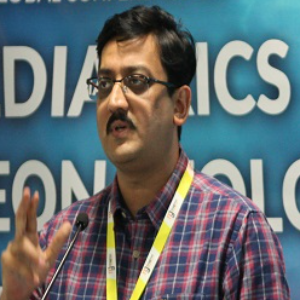Abstract:
Hypoxic-ischemic encephalopathy (HIE) affects approximately one in every 1000 live births, representing the leading cause of death, severe neurological morbidity, and seizures in full-term neonates worldwide, and causing up to 20% of cases of cerebral palsy.
It’s been almost two decades since therapeutic hypothermia (TH) was introduced in the UK, and this is the only neuroprotective intervention that has become standard practice in the treatment of perinatal hypoxic-ischemic encephalopathy (HIE).
Whilst the neuroprotective benefits, improvement in short term outcomes (through widely adopted guidelines) and low rate of serious side effects provide ample evidence to support the use of this intervention for treating newborns with hypoxic ischemic encephalopathy, the long-term benefits are still unclear. This talk aims to address the controversies surrounding its use.
Audience Takeway:
The efficacy and safety of neuroprotection with TH was supported by several meta-analyses; and it has been considered a cost-effective intervention in high-income countries, where 6-9 neonates are needed to treat to prevent one case of death or severe disability.
Whilst therapeutic hypothermia is the standard of care for moderate to severe neonatal HIE, controversy remains about its efficacy and application in specific populations like those with mild HIE, premature infants, and in low-resource settings.
Despite its neuroprotective benefits, TH is not a cure. Hence, researchers are investigating adjuvant and alternative therapies to further improve outcomes.
The use of this resource intensive intervention in HIE babies, especially with additional pressure to initiate treatment within six hours of birth; raises questions about the validity of achieving a fully informed parental consent and poses its own ethical plus practical dilemmas.
This talk will aim to address these ambiguities and help the participants develop an evidence-based management approach.




